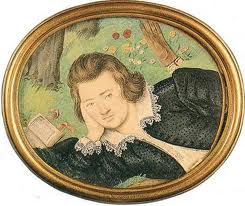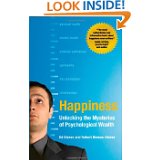 In the Matrix movies we learn that there was a previous matrix: a total virtual world provided for the humans, a utopia in which everyone was happy. But the program was a failure. Too many of the humans rejected it and “woke up” because that world was too perfect. Apparently they knew subconsciously that in real life people weren’t supposed to be that happy.
In the Matrix movies we learn that there was a previous matrix: a total virtual world provided for the humans, a utopia in which everyone was happy. But the program was a failure. Too many of the humans rejected it and “woke up” because that world was too perfect. Apparently they knew subconsciously that in real life people weren’t supposed to be that happy.
What good is happiness? Is it anything more than taking Ecstasy or some other “happy pill”? Does it actually benefit you or society in any way, or is it merely feelings that are vacuous and fleeting?
 Especially in centuries past, many people have thought that happiness is just a trivial luxury that has no substantial benefits, is not worthy of pursuit, perhaps
Especially in centuries past, many people have thought that happiness is just a trivial luxury that has no substantial benefits, is not worthy of pursuit, perhaps  even somewhat characteristic of imbecilic airheadedness. Intellectuals were above such nonsense; melancholy was to be expected. Author of the classic Madame Bovary, Gustave Flaubert famously declared: “To be stupid, selfish, and have good health are three requirements for happiness, though if stupidity is lacking, all is lost.”
even somewhat characteristic of imbecilic airheadedness. Intellectuals were above such nonsense; melancholy was to be expected. Author of the classic Madame Bovary, Gustave Flaubert famously declared: “To be stupid, selfish, and have good health are three requirements for happiness, though if stupidity is lacking, all is lost.”
Albert Schweitzer said “Happiness is nothing more than good health and a bad memory.”
Recently researchers have taken a different view. Ed Diener, probably the world’s foremost authority on the subject, with his son Robert Biswas-Diener, writes:
Modern psychological science has added a fascinating and counter-intuitive new dimension to the age-old discussion of happiness: happiness is beneficial. Rather than viewing happiness as a pleasant state of mind, research tells us that happiness is helpful and functional. It is a resource to be used rather than only to be enjoyed.
 In their popular book, Happiness: Unlocking the Mysteries of Psychological Wealth, Diener and Diener tell us that “happiness, as it turns out, not only feels good, but is often good for you and for society.” They include the cynical quotations above, and specifically state that “Flaubert was dead wrong.”
In their popular book, Happiness: Unlocking the Mysteries of Psychological Wealth, Diener and Diener tell us that “happiness, as it turns out, not only feels good, but is often good for you and for society.” They include the cynical quotations above, and specifically state that “Flaubert was dead wrong.”
In Part II of the book, they discuss research showing that:
…happiness is associated with a wide variety of tangible benefits, ranging from improved health, to better marriages, to increased chances of attaining personal goals.
People often think of happiness as something you get, or a state you get to. But the authors discuss happiness as a resource you can use to increase the chances of success in other areas, as “emotional capital we can spend in the pursuit of other attractive outcomes”:
Research shows that happy people live longer, succumb to fewer illnesses, stay married longer, commit fewer crimes, produce more creative ideas, make more money, and help others more. Who wouldn’t want to be happier if it increases one’s chances of being physically fit, financially secure, helpful, and surrounded by friends?
So cultivating happiness actually has significant, multiple benefits. But how do you grow your happiness? A number of the articles on this web site will help you. One of them highlights where to look: In “Part 1” of this article I talked about another key principle of Psychological Wealth discovered by researchers. If you haven’t read it already, you may want to do so now: “Two Principles of Psychological Wealth, part 1.” If you have, check out some of the recommended articles above in the right column.
![[Circle]](http://www.meaningandhappiness.com/pictures/GoldCircle36i.png)

